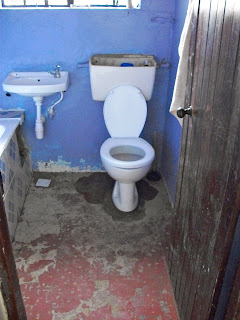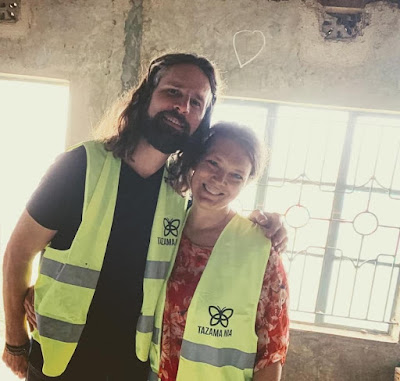Programs / Partnerships (8 of 8)
An error that the church can fall into is that when it
comes to alleviating poverty or addressing a social issue, we automatically want
to start a program. We believe that the church must be the agent to fulfill the
need. This problem solving mentality and
the need to fix what is broken is mostly driven by a western mentality and
worldview – remember “Alafu?” It is compounded by the fact that westerners
happily fund programs and the global south happily accepts and becomes a
dependent on the merry-go-round of relief and development. It is merely a reflection and the fallout of
post-colonialism.
Partnering internationally and funding programs can be attained through mutual accountability, transparency and trust. The problem is that cross-culturally we even define words like "accountability" and "transparency" differently.
Creating or funding programs doesn’t easily translate to global partnerships or effective ministry.
It is well believed that the global relief and
development sector is compromised with corruption and greed. Unfortunately, church and para-church
ministries have not had a much better track record when it comes to ethics and
fiscal responsibility. We are not
posting blame only on the receiver and the helped in these transactions. Well-intentioned givers continue to make
enormous blunders that in the end create more harm than good.
While it may be unlikely to ever see the laic sector clean
up it’s reputation, for the sake of the Gospel, the church must lead in ethics
and hold one another to a higher expectation.
We need to recognize that the church of the global south might be better
positioned with a broader worldview to lead the west in their charitable
giving. We need to be committed to shed
the prevalent colonial mentality and work on level terms and conditions. Again, we need to define words like "level" and "transparency." The west needs to ask the right questions and
the global south needs be willing to bring up the difficult conversations – for the sake of the Gospel, we need
to minimize “beating around the bush” and not be so afraid of hurting someone's feelings.
We might all be sitting at a table speaking French but while holding our own world views, we are still speaking different languages.
While the world is becoming smaller and global church partnerships
are becoming the norm, we should also look at the other side of the coin. Rather than just giving to the church of the
global south, the western church should also challenge others on how
to shape a culture of giving within it’s own indigenous church. While the western church has not “cornered
the market” on giving and could still be more generous, generally, there is an
even poorer culture of giving in the church of the global south. I am not comparing dollar for dollar but
comparing a generous heart of giving; the kind of giving that scripture calls
us to. The African church, for example,
has become accustomed to depending on others for their needs. They have been given so much assistance that they have forgotten how to be generous, depend on God in giving
of their own funds for the sake of the gospel.
It is almost as if God, the Holy Spirit is left out of the equation.
The underlying message is that “God has not given us enough and therefore we should go elsewhere to get more funds in order for us to do ministry.”
When African church-goers won’t give because the west will give (a
classic, crippling, welfare, poor mentality in development circles) God
becomes diminished and the church is left with a poor, unhealthy relationship with God.
Part of the issue also stems back to the fact that global
church tends to emulate and model themselves after the western church with big
buildings, bigger productions, and bigger programs. The global south will likely never keep up
with the western church on programs such as these. But, do they even need the programs and
buildings to spread the Gospel? The
question should be, “do these programs even translate cross-culturally? Is this part of the fallout of colonial missionary
mentality on what is required to do church?
How much of this is the global south waiting for someone to tell them
what and how to do it when they likely already have the means to get it done? How
often does the colonial minded church quench the global/universal work Holy
Spirit? The western church has begun to
realize that bigger buildings and programs do not necessarily translate to more
lives changed. When will the church
trust in God’s economy and follow his universal kingdom mentality?

